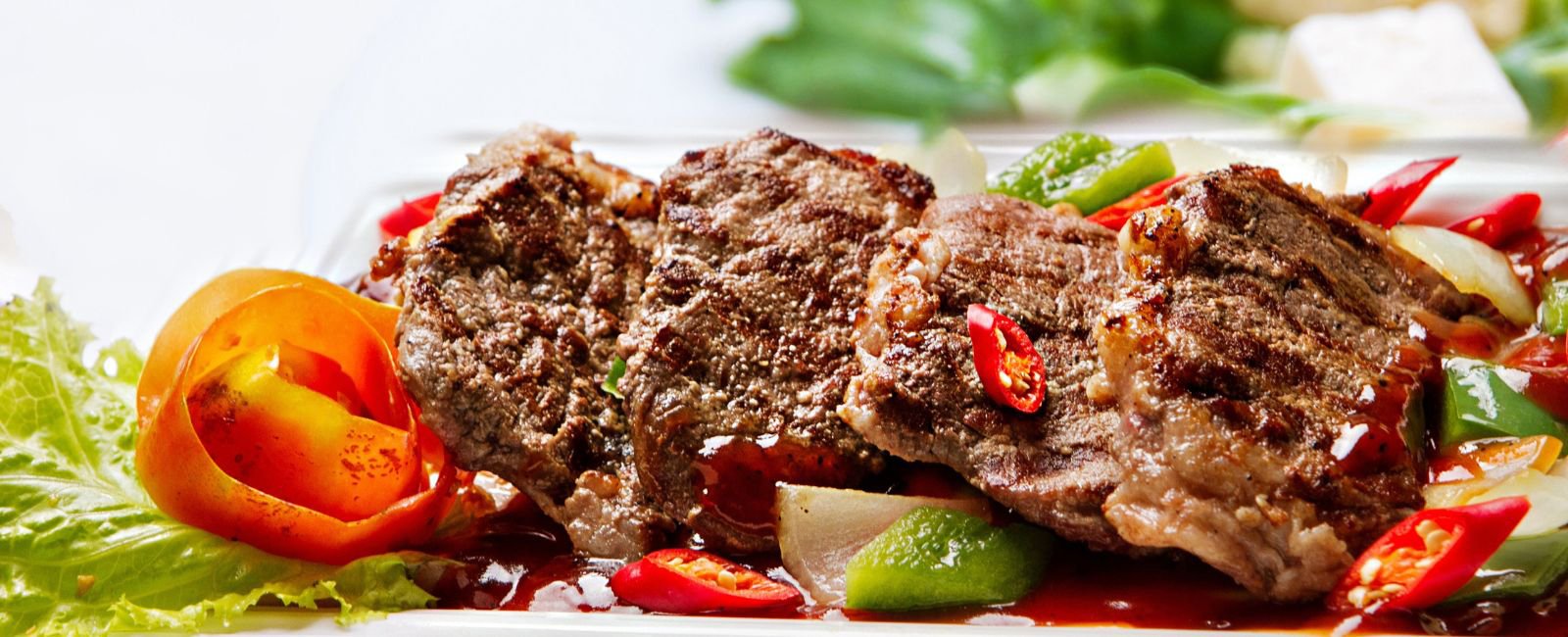Eid ul Adha: Before bingeing on meat, get a taste of these food safety tips
While enjoying binge eating, it is important to consider certain practices from a food safety perspective

What is food safety? A term that few people in Pakistan have ever heard of? Why does this matter? We've all experienced food poisoning at some point in our lives, but relatively few people are aware of how to prevent it. Food safety refers to the techniques or practices used to ensure that food does not pose any health risks once consumed. It primarily applies to food that has been handled or cooked in a hygienic manner.
Every year, during Eid ul Adha thousands fall ill after consuming large amounts of meat. According to a newspaper report, in 2016, 1,500 people were hospitalised with gastroenteritis and vomiting on Eid ul Adha days. Similarly, PIMS reported 973 cases of food poisoning during the same year's festivities.
While enjoying binge eating, it is important to consider certain practices from a food safety perspective to ensure a safe experience. Here is an extensive guide:
First and foremost, choose a professional, skilled, clean, and friendly butcher. The butcher should be of sound mind and must maintain proper hygiene.
Make sure to have sharp, sanitised knives, bactericidal soap for washing the animal, your own butcher blocks, clean mats, pedestal fans, steel trays, clean refrigerators and freezers, and transparent poly bags for storage.
It is important to use plain plastic bags only, as colourful bags often contain low-grade recycled plastic from hospitals and other waste, and should not be used.
Before the day of slaughter, ensure that your animal is bathed, well-rested, and free from any kind of physical exertion or stress. This directly affects the quality and safety of the meat. Avoid transporting the animal over long distances.
Prolonged pre-slaughter stress, such as fighting, excessive running, exposure to cold weather, fasting, and transportation within 12 to 48 hours prior to slaughter, depletes the stored energy in the muscles.
This can result in faster spoilage of the meat after slaughter. Additionally, loud noises and sacrificing animals in front of other animals also cause stress before and during the slaughtering process.
Do not allow the animal to drink excessive amounts of water before slaughter. Just provide enough water to moisten its mouth. Consuming excessive water can cause rapid expulsion of faecal matter from the oesophagus during gut removal if accidentally punctured by a knife. This can lead to contamination of the meat with excrement.
On the day of slaughter, ensure that the animal’s throat is sliced using a very sharp knife, but the butcher should not poke the knife into the spinal cord, which is a common practice, or behead the animal until all blood has completely drained. Effective blood drainage from the animal prevents the meat from deteriorating and ensures its safety for a longer period of time.
When removing the guts and organs, including the liver, kidneys, etc, which contain faeces, it is essential to use a skilled butcher to prevent puncturing the stomach.
Avoid using pressure washers or pipes to clean the area when there is blood all around and the animal has been placed there because they will splatter blood and water onto the animal's carcass. It will spoil as a result since both water and blood are great environments for the growth of bacteria. Use tubs and hand jugs to gently wash the soil away if you want to clean the area.
Once the head is removed, ensure that the carcass is placed on a new mat. Instruct the butchers to wash their hands thoroughly instead of using dirty clothes to wipe them. Provide them with plastic aprons to prevent contact between the meat and their soiled garments.
Provide sterilised knives for meat cutting. You can achieve sterilisation by immersing them in hot, boiling water for 10 minutes. If the butchers prefer to use their own knives, ensure that they wash and sanitize them before cutting the meat.
Use the butcher blocks you have purchased for meat cutting instead of the ones brought by the butcher. Often, the butcher's blocks are heavily soiled with blood, which carries a lot of bacteria that can cause food poisoning and severe illness.
Choose a cool area inside your house for the meat-cutting process, rather than a hot environment. Place pedestal fans to prevent flies from landing on the meat, and use a shade if necessary. It is not advisable to cut meat on roads under direct sunlight, as it promotes rapid bacterial growth and premature dehydration of the meat, which can lead to illness. If you plan to consume organs such as the liver, kidneys, and brains (as it is common during Eid), ensure that they are cut on a separate chopping board from the meat.
Cut and handle the meat in batches immediately, avoiding piling it up and accumulating it. Place it on steel trays to cool down, and then transfer it to the refrigerator for personal use. Once the meat has properly cooled down, pack it in flat packs using clear poly bags and freeze them. Avoid washing the meat with tap water; if necessary, use drinking water.
For distribution, avoid storing the meat in the refrigerator. Instead, spread it on steel trays in a clean, dust-free room without signs of flies or rodents. Make flat packs and place them in baskets or tubs for distribution on the same day. Ensure that the meat is not placed in the trunk of the car. Ideally, use a vehicle with air conditioning for distribution.
If the meat has any kind of soiling, such as dust or faeces, handle it separately and wash it with drinking-quality water. While washing meat is not recommended, water provides a suitable medium for bacterial growth, especially tap water, which often contains dangerous bacteria that can not only spoil the meat but also cause illness.
Use gloves when handling meat and wash hands before and after handling it. Handle and cut the bones at the end to prevent bone chips from ending up in the meat. Bone chips are undesirable and can be unsafe, potentially causing injury if not removed during the cooking process.
Karachi has experienced monsoons during Eid ul Adha in recent years. The sanitary conditions during the monsoon are compromised, providing an ideal environment for bacterial harborage, which can lead to health issues. If you don't have sufficient hygienic arrangements during this season, consider outsourcing the qurbani (sacrifice) service offered by many meat processors who carry out the process in a hygienic and controlled environment.
Ensure that meat storage allows for proper cooling and freezing. The ideal temperatures for chilled meat are between 0 and 4 degrees Celsius, while frozen meat should be kept at -15 degrees Celsius or below. If you don't have thermostats or probes, make arrangements to monitor the temperatures. Properly frozen meat should be rock solid and show no signs of thawing. Prior to Eid, clean your refrigerators and deep-freezers, remove any frost development, and avoid overloading them, as it can affect the temperature and promote the growth of illness-causing bacteria.
While these arrangements may seem overwhelming and require effort, they contribute to a healthy and safe life. They also have the added advantage of extending the meat's shelf life up to four weeks when handled hygienically, enhancing its palatability and quality.
In the long run, if we all practice and encourage our butchers to prioritize hygiene, it will ultimately enhance safety and establish higher customer expectations in this regard. We are aware that qurbani is a religious ritual aimed at strengthening our devotion.
As Prophet Muhammad (PBUH) once said, cleanliness is half of our faith, and cleanliness is part of our religious teachings. The Quran also emphasizes the consumption of halal food, which should be tayyab, meaning hygienic and clean. This responsibility extends beyond religious obligations; it is an ethical duty to ensure the well-being of ourselves and our loved ones during this annual ritual.
Yusra Binte Khalid is a food technologist and has over 12 years of experience in field of food safety and quality.




